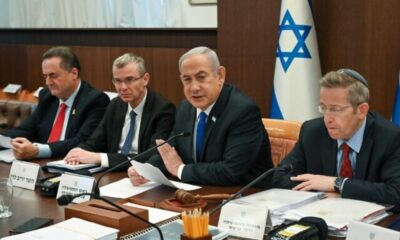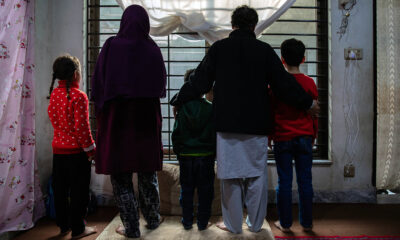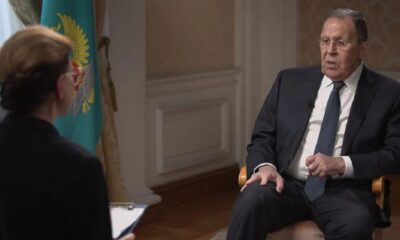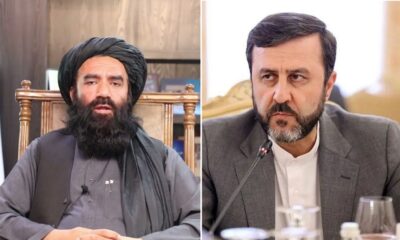World
Irish Prime Minister unexpectedly quits
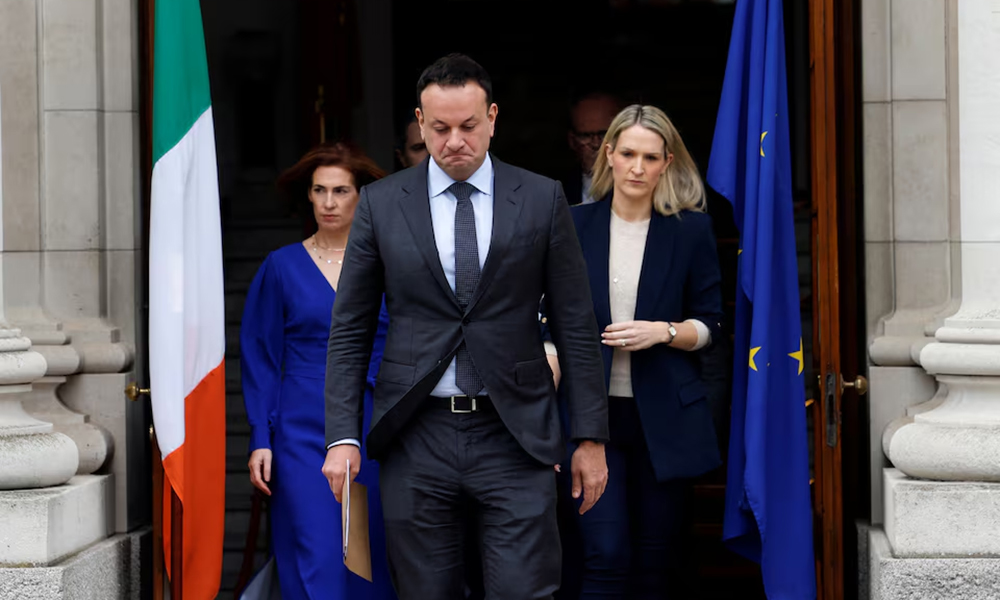
Leo Varadkar announced on Wednesday he was stepping down as Ireland’s prime minister in a surprise move, saying the country’s coalition government would stand a better chance of reelection under another leader, Reuters reported.
Varadkar’s Fine Gael party will open nominations for a new leader on Thursday with the results to be announced on April 5. Parliament would then vote on that person succeeding Varadkar as prime minister after it returns from Easter recess on April 9.
The shock departure of Varadkar, who became the first gay prime minister of the once-staunchly Catholic country in 2017 and returned to the premiership just 15 months ago, does not trigger a general election. A vote must be held by March 2025.
“My reasons for stepping down are both personal and political,” Varadkar, 45, told a hastily arranged news conference at government buildings in Dublin, sounding emotional as he spoke.
“But after careful consideration, and some soul searching, I believe that a new Taoiseach (prime minister) and a new leader will be better placed than me to achieve (the coalition government’s re-election).”
His successor will have 12 months to try to claw back the wide opinion poll deficit that both Fine Gael and their largest coalition partner Fianna Fail have to the main opposition Sinn Fein party, the former political wing of the Irish Republican Army, read the report.
Polls suggest the current three-party coalition also stands a chance of being re-elected, though Fine Gael will have to do without around one-third of its sitting lawmakers who have said they will not seek re-election.
Bookmaker Paddy Power made 37-year-old Higher Education Minister Simon Harris, who was health minister during the COVID-19 pandemic, the clear favourite to take over from Varadkar.
Other contenders include Public Expenditure Minister Paschal Donohoe and Justice Minister Helen McEntee. Enterprise Minister Simon Coveney, a former deputy prime minister who lost to Varadkar in the 2017 leadership election, ruled himself out.
In a weighted vote, Fine Gael’s 54 lawmakers account for 65% of the electorate, meaning a candidate can quickly gain momentum with the public support of colleagues. The remaining votes are split between party members and local councillors.
“The problem is that there is no natural stand out, one of the problems of being in power for so long is that all of them come with the baggage of longevity in office,” said David Farrell, professor of politics at University College Dublin.
“Harris probably has the edge. He’s a great communicator and could make a difference in the election.”
Varadkar’s government has overseen a sharp economic recovery from the pandemic but has struggled to tackle a decade-long housing crisis and more recently the pressure on services from record numbers of asylum seekers and Ukrainian refugees, Reuters reported.
He also led Ireland through Brexit talks and the start of the COVID-19 crisis, while Ireland voted to remove a ban on abortion under his leadership. Varadkar announced publicly that he was gay in a radio interview during the 2015 referendum campaign that successfully legalised same-sex marriage.
However, he suffered an embarrassing defeat this month when a large majority of voters rejected proposals to replace constitutional references to a mother’s “duties in the home”.
The leaders of Varadkar’s coalition partners said they were surprised when he let them know of his plans at a regular weekly meeting on Tuesday, adding they would both work with his successor to fulfil the government’s mandate.
According to Reuters a new prime minister, whoever it is, would not change the direction of the coalition’s policy programme.
A small crowd watched from the gates of government buildings as Varadkar made his announcement. Officials, including one junior minister from the Green Party, looked out of open windows onto the courtyard of government buildings as Varadkar spoke.
As recently as last weekend, Varadkar was in Washington where he met U.S. President Joe Biden for St Patrick’s Day celebrations and talks on subjects including the Israel-Hamas conflict and the Belfast/Good Friday Agreement.
Varadkar said it was the right time for him to step down, that he had nothing else lined up and that there was no “real reason” behind his decision.
“Politicians are human beings. We have our limitations. We give it everything until we can’t anymore and then we have to move on,” he said.
Ahead of Varadkar’s surprise departure, Reuters World News daily podcast recorded a special episode, opens new tab looking at the debate around Irish unity.
World
Hong Kong tycoon Jimmy Lai sentenced to 20 years in jail in national security trial
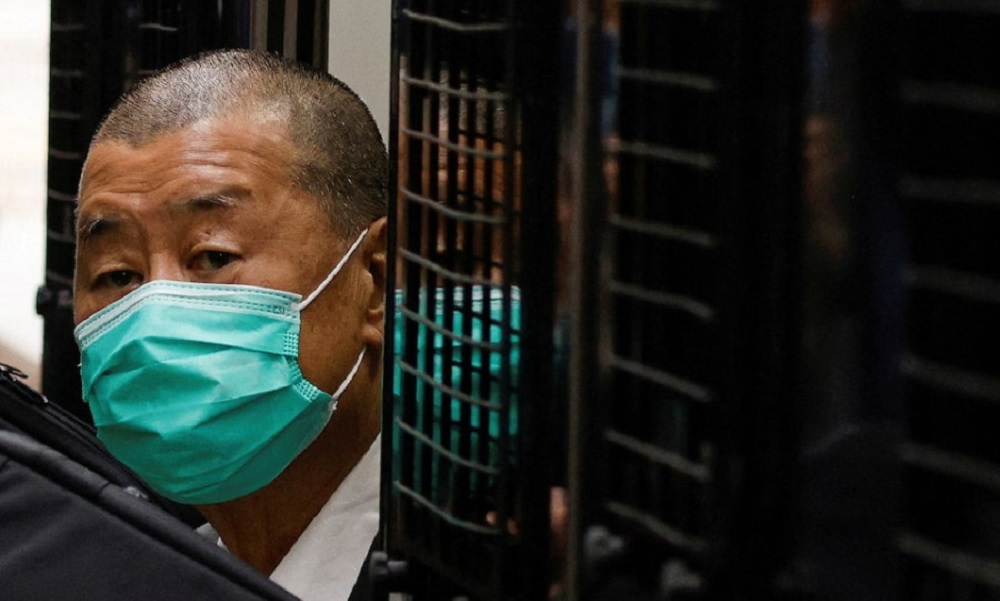
Hong Kong’s most prominent media tycoon Jimmy Lai was sentenced on Monday to a total of 20 years in jail on national security charges comprising two counts of conspiracy to collude with foreign forces and one of publishing seditious materials.
The sentence ends a legal saga spanning almost five years, and Hong Kong’s most high-profile national security hearing. Lai, founder of the now-shuttered Apple Daily newspaper, was first arrested in August 2020 and convicted last year, Reuters reported.
Lai’s sentence of 20 years was within the most severe penalty “band” of 10 years to life imprisonment for offences of a “grave nature”.
The Hong Kong court said Lai’s sentence was enhanced by the fact that he was “mastermind” and driving force behind foreign collusion conspiracies.
The 78-year-old, a British citizen, has denied all the charges against him, saying in court he is a “political prisoner” facing persecution from Beijing.
Lai’s plight has been criticised by global leaders, opens new tab including U.S. President Donald Trump and British Prime Minister Keir Starmer, spotlighting a years-long national security crackdown in the China-ruled Asian financial hub, following mass pro-democracy protests in 2019.
“The rule of law has been completely shattered in Hong Kong. Today’s egregious decision is the final nail in the coffin for freedom of the press in Hong Kong,” said Jodie Ginsberg, CEO of the Committee to Protect Journalism.
“The international community must step up its pressure to free Jimmy Lai if we want press freedom to be respected anywhere in the world.”
Lai arrived to court in a white jacket, with hands held together in a praying gesture as he smiled and waved at supporters.
The case has drawn calls for the long-standing critic of the Chinese Communist Party, who friends and supporters say is in frail health, to be freed.
“The harsh 20-year sentence against 78-year-old Jimmy Lai is effectively a death sentence,” said Elaine Pearson, Asia Director of Human Rghts Watch. “A sentence of this magnitude is both cruel and profoundly unjust.”
Dozens of Lai’s supporters queued for several days to secure a spot in the courtroom, with scores of police officers, sniffer dogs and police vehicles including an armoured truck and a bomb disposal van deployed around the area.
“I feel that Mr. Lai is the conscience of Hong Kong,” said a man named Sum, 64, who was in the queue.
“He speaks up for Hong Kong people, and even for many wrongful cases in mainland China and for the development of democracy. So I feel that spending a few days of my own freedom sleeping out here is better than seeing him locked up inside.”
Starmer raised the case of Lai, who holds British citizenship, in detail during a tête-à-tête with Chinese leader Xi Jinping last month in Beijing’s Great Hall of the People, according to people briefed on the discussions. Britain’s national security adviser, Jonathan Powell, and China’s foreign minister, Wang Yi, were also present.
“I raised the case of Jimmy Lai and called for his release,” Starmer told the UK parliament after his trip.
Trump too, raised Lai’s case with Xi during a meeting last October. Several Western diplomats told Reuters that negotiations to free Lai would likely begin in earnest after he is sentenced, and depending on whether Lai will appeal.
LIFE IN PRISON?
Lai’s family, lawyer, supporters and former colleagues have warned that he could die in prison as he suffers from health conditions including heart palpitations and high blood pressure.
Besides Lai, six former senior Apple Daily staffers, an activist and a paralegal will also be sentenced.
“Jimmy Lai’s trial has been nothing but a charade from the start and shows total contempt for Hong Kong laws that are supposed to protect press freedom,” said the Committee to Protect Journalists’ Asia-Pacific Director Beh Lih Yi.
Beijing, however, says Lai has received a fair trial and all are treated equally under the national security law that has restored order to the city.
World
Trump signs order threatening tariffs on nations doing business with Iran

U.S. President Donald Trump signed an executive order on Friday that may impose a 25% tariff on countries that do business with Iran.
The order comes as tensions between Iran and U.S. continue to simmer even as the two countries engaged in talks this week.
World
Trump rejects Putin offer of one-year extension of New START deployment limits
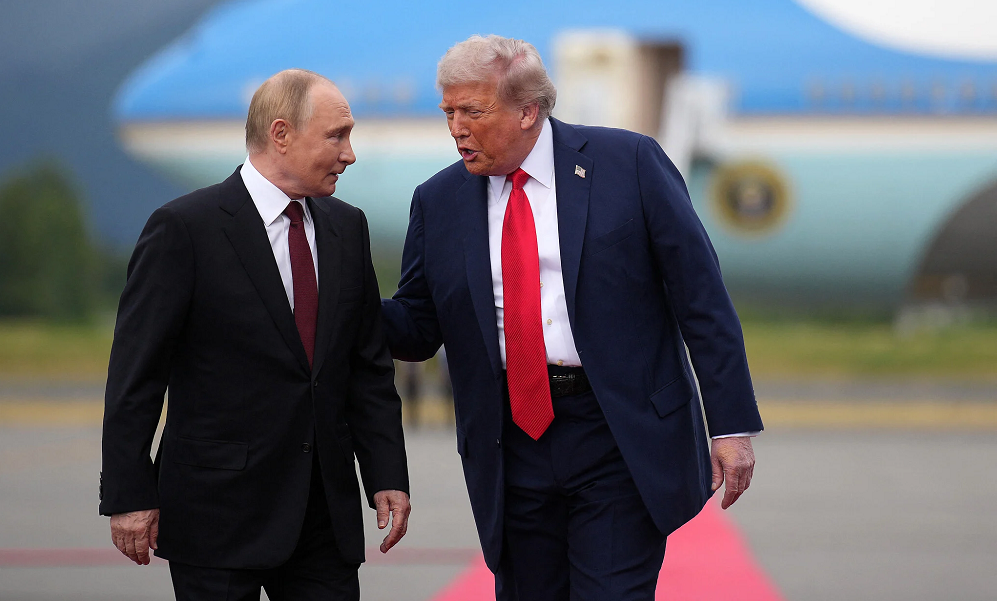
U.S. President Donald Trump on Thursday rejected an offer from his Russian counterpart to voluntarily extend the caps on strategic nuclear weapons deployments after the treaty that held them in check for more than two decades expired.
“Rather than extend “New START … we should have our Nuclear Experts work on a new, improved and modernized Treaty that can last long into the future,” Trump wrote in a post on his Truth Social platform, Reuters reported.
Arms control advocates warn that the expiration of the treaty will fuel an accelerated nuclear arms race, while U.S. opponents say the pact constrained the U.S. ability to deploy enough weapons to deter nuclear threats posed by both Russia and China.
Trump’s post was in response to a proposal by Russian President Vladimir Putin for the sides to adhere for a year to the 2010 accord’s limit of 1,550 warheads on 700 delivery systems — missiles, aircraft and submarines.
New START was the last in a series of arms control treaties between the world’s two largest nuclear weapons powers dating back more than half a century to the Cold War. It allowed for only a single extension, which Putin and former U.S. President Joe Biden agreed to for five years in 2021.
In his post, Trump called New START “a badly negotiated deal” that he said “is being grossly violated,” an apparent reference to Putin’s 2023 decision to halt on-site inspections and other measures designed to reassure each side that the other was complying with the treaty.
Putin cited U.S. support for Ukraine’s battle against Russia’s 2022 full-scale invasion as the reason for his decision.
White House spokeswoman Karoline Leavitt told reporters that the U.S. would continue talks with Russia.
BOTH SIDES SIGNAL OPENNESS TO TALKS
Earlier, Kremlin spokesman Dmitry Peskov said Russia was still ready to engage in dialogue with the U.S. if Washington responded constructively to Putin’s proposal.
“Listen, if there are any constructive replies, of course we will conduct a dialogue,” Peskov told reporters.
The UN has urged both sides to restore the treaty.
Besides setting numerical limits on weapons, New START included inspection regimes experts say served to build a level of trust and confidence between the nuclear adversaries, helping make the world safer.
If nothing replaces the treaty, security analysts see a more dangerous environment with a higher risk of miscalculation. Forced to rely on worst-case assumptions about the other’s intentions, the U.S. and Russia would see an incentive to increase their arsenals, especially as China plays catch-up with its own rapid nuclear build-up.
Trump has said he wants to replace New START with a better deal, bringing in China. But Beijing has declined negotiations with Moscow and Washington. It has a fraction of their warhead numbers – an estimated 600, compared to around 4,000 each for Russia and the U.S.
Repeating that position on Thursday, China said the expiration of the treaty was regrettable, and urged the U.S. to resume dialogue with Russia on “strategic stability.”
UNCERTAINTY OVER TREATY EXPIRY DATE
There was confusion over the exact timing of the expiry, but Peskov said it would be at the end of Thursday.
Russia’s Foreign Ministry said Moscow’s assumption was that the treaty no longer applied and both sides were free to choose their next steps.
It said Russia was prepared to take “decisive military-technical countermeasures to mitigate potential additional threats to national security” but was also open to diplomacy.
That warning was in apparent response to the possibility that Trump could expand U.S. nuclear deployments by reversing steps taken to comply with New START, including reloading warheads on intercontinental ballistic missiles and submarine-launched missiles from which they were removed.
A bipartisan congressionally appointed commission in 2023 recommended that the U.S. develop plans to reload some or all of its reserve warheads, saying the country should prepare to fight simultaneous wars with Russia and China.
Ukraine, which has been at war with Russia since Moscow’s 2022 invasion, said the treaty’s expiry was a consequence of Russian efforts to achieve the “fragmentation of the global security architecture” and called it “another tool for nuclear blackmail to undermine international support for Ukraine.”
Strategic nuclear weapons are the long-range systems that each side would use to strike the other’s capital, military and industrial centres in the event of a nuclear war. They differ from so-called tactical nuclear weapons that have a lower yield and are designed for limited strikes or battlefield use.
If left unconstrained by any agreement, Russia and the U.S. could each, within a couple of years, deploy hundreds more warheads, experts say.
“Transparency and predictability are among the more intangible benefits of arms control and underpin deterrence and strategic stability,” said Karim Haggag, director of the Stockholm International Peace Research Institute.
-

 Latest News3 days ago
Latest News3 days agoAfghanistan to grant one- to ten-year residency to foreign investors
-

 Sport4 days ago
Sport4 days agoIndonesia shock Japan to reach historic AFC Futsal Asian Cup final
-

 Sport5 days ago
Sport5 days agoMilano Cortina 2026 Winter Olympics: What You Need to Know
-

 Sport3 days ago
Sport3 days agoIran clinch AFC Futsal Asian Cup 2026 in penalty shootout thriller
-
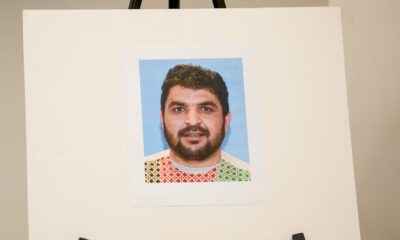
 Latest News5 days ago
Latest News5 days agoUS Justice Department to seek death penalty for Afghan suspect in National Guard shooting
-

 Latest News3 days ago
Latest News3 days agoAfghanistan says Pakistan is shifting blame for its own security failures
-

 Latest News5 days ago
Latest News5 days agoUzbekistan, Kazakhstan discuss cooperation on Afghanistan
-

 Latest News5 days ago
Latest News5 days agoAfghanistan facing deepening hunger crisis after US Aid Cuts: NYT reports


